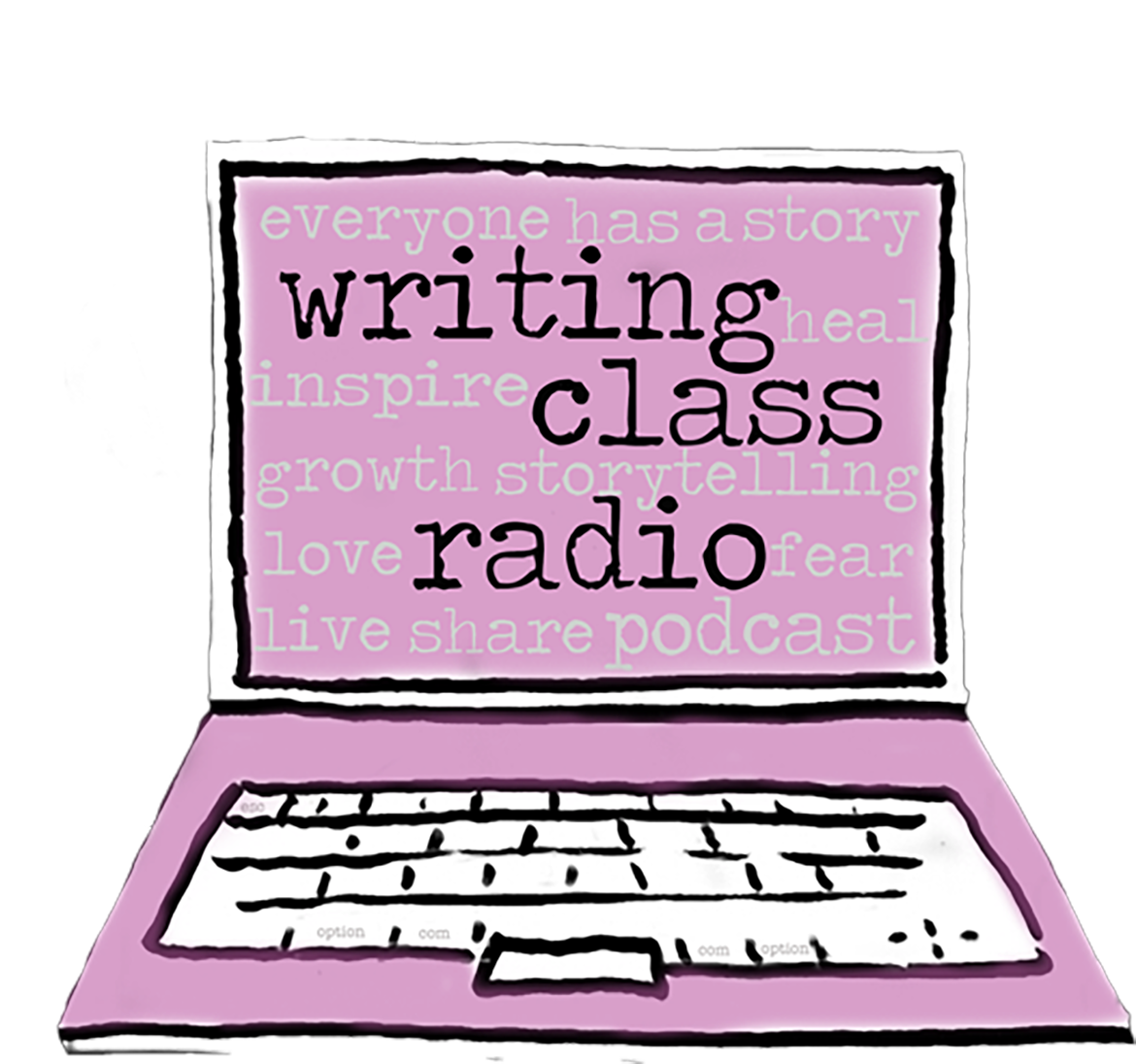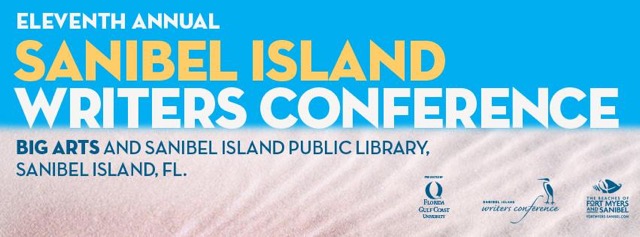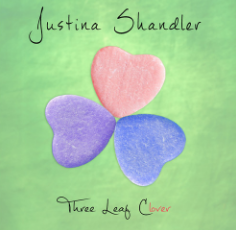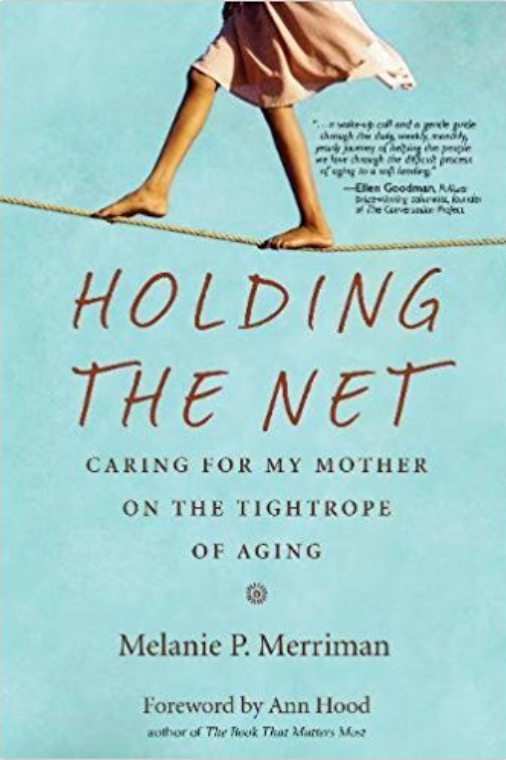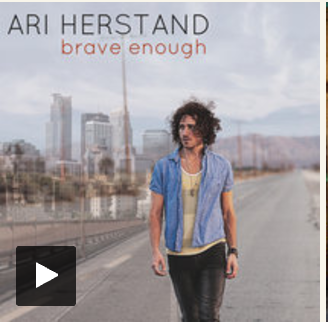Show Notes Episode 151: Follow the Story Spine to Get Published
/This episode showcases the effectiveness of using the story spine structure. The story spine is a story structure as old as time. It’s the model every fairytale follows. It works really well for all stories because it’s intuitive. It’s in our collective unconscious.
You will hear three prompt responses from Writing Class Radio’s First Annual Key Largo Writing Retreat.We told our students to think about a time everything changed and then we walked them through the story spine. Kim Costigan, Pamela Lear, and Dr. Jane Marks brought the bag!
You will also hear about the other stories at the retreat that were published after hard core edits. Start planning to attend our next Key Largo Writer’s Retreat in Dec 2023.
Writing Class Radio is hosted by Allison Langer and Andrea Askowitz. Guest host Zorina Frey. Audio production by Matt Cundill, Evan Surminski and Aiden Glassey at the Sound Off Media Company. Theme music is by Emia.
There’s more writing class on our website including stories we study, editing resources, video classes, writing retreats, and live online classes. Join our writing community by following us on Patreon.
If you want to write with us every week, you can join our First Draft weekly writers groups. You have the option to join Allison Langer on Tuesdays 12-1 ET and/or Zorina Frey Wednesdays 7-8pm ET. You’ll write to a prompt and share what you wrote. If you’re looking to take your writing to the next level, or if you are a business owner, community activist, group that needs healing, entrepreneur and you want to help your team write better, check out all the classes we offer on our website: writingclassradio.com.
Join the community that comes together for instruction, an excuse to write, and most importantly, the support from other writers. To learn more, go to www.Patreon.com/writingclassradio. Or sign up HERE for First Draft for a FREE Zoom link.
A new episode will drop every other WEDNESDAY.
There’s no better way to understand ourselves and each other, than by writing and sharing our stories. Everyone has a story. What’s yours?
If you would like a transcript of the episode read below:
Andrea Askowitz 00:00:06
I'm Andrea Askowitz.
Zorina Frey 00:00:08
I'm Zorina Frey.
Allison Langer 00:00:09
And I'm Allison Langer. This is Writing Class Radio. You'll hear true personal stories and learn how to write your own stories. Together, we produce this podcast, which is equal parts heart and art. By heart, we mean the truth in the story. By art, we mean the craft of writing. No matter what's going on in our lives, Writing Class is where we tell the truth. It's where we work out our sh**. There's no place in the world like Writing Class. And we want to bring you in.
Andrea Askowitz 00:00:36
We got Zorina back on our show. Hey, are you guys done? We're about to bring you stories from Writing Class Radio's first annual Key Largo Writing retreat that happened in December 2022. And Zorina was there when all that magic happened.
Allison Langer 00:01:01
All I can think about is the karaoke.
Andrea Askowitz 00:01:05
Yeah, that was magic. That was magic.
Allison Langer 00:01:08
And all the stories that came out of it. Can I brag? Didn't I get one published? I got one in the Huffington Post.
Zorina Frey 00:01:14
You did what?
Andrea Askowitz 00:01:15
I think I did, too. Yes, you did, actually. You got two published. Allison Langer. Both of the stories that we workshopped in both our Key Largo Writing retreats have been published big time. You Washington Post.
Allison Langer 00:01:30
Me, huffington Post and Washington Post.
Zorina Frey 00:01:33
Zorina, I'm in the middle. My story was a little personal, so it took a minute for me to get the courage. It's submitted somewhere and I'm just waiting.
Andrea Askowitz 00:01:44
It's encomino. At Key Largo Writing retreat, we told our students to think about a time everything changed, and then we walked them through the story spine, which is, oh, my God, I love the story spine. It's a structure which is as old as time. It's really the model. It's the model for every fairy tale, but it really works for every story because it's totally intuitive. It's just the structure that we have in all of our collective unconscious.
Allison Langer 00:02:18
First, before I explain what Andrea just said, let's delineate a little bit between story and prompt response so that our listeners understand what we're bringing them today.
Andrea Askowitz 00:02:31
Okay, so we like to make a distinction between a story that has been workshopped and worked on at home and rises to the level of what I like to call art and a prompt response. Sorry, Alice is vomiting. But there is a difference between a completed story and a prompt response. Although there are some people lately who can write a story just out of the box, but it's very, very rare. But what we're bringing you today are three prompt responses that came out of prompt writing to the story spine. Does that make sense?
Allison Langer 00:03:10
All right, well, it might make more sense when we explain what story spine is. So first of all, we give our students the prompt.
Andrea Askowitz 00:03:19
Okay?
Allison Langer 00:03:20
In the beginning wait.
Andrea Askowitz 00:03:21
First, I think we asked them to think of a time everything changed.
Allison Langer 00:03:26
What Andrea said, think about a time everything changed. And then I said, okay, in the beginning. And then people just write for three minutes. Then I interrupt and say, but one day and give another three minutes, and because of that, another three minutes, and because of that, another three minutes. And maybe I'll say that again until finally and people still write, and then nothing was the same. And then I give people about three to five minutes to kind of just explain basically how whatever this situation was impacted their life. And that is the part that makes a situation and a story different. So a lot of people come to the table with just a situation. This crazy thing happened to me. But because of until nothing was the same. Here, you're forced to write how this situation impacted you. And that's am I saying impacted?
Andrea Askowitz 00:04:16
Right.
Allison Langer 00:04:16
Impacted. Impacted.
Andrea Askowitz 00:04:18
But what you're saying is making me realize why this prompt and this, like, following these prompts all in a row are so good. Because they force you to take a situation and think about what the meaning of it was for you. And that's what makes the situation a story.
Zorina Frey 00:04:33
Boom.
Allison Langer 00:04:34
Yeah, exactly. Yeah.
Zorina Frey 00:04:36
It keeps you from going outside of the rails, too, and going down an avenue where you're just like, okay, what am I saying? And just getting off track. It really does work.
Andrea Askowitz 00:04:46
So we're going to hear three prompt responses to this, and then we'll talk later about whether or not these are full stories. We could, because maybe they are.
Zorina Frey 00:04:54
Up first is Pamela Lear, then Jane Marks, then Kim Costigan back with their prompt responses after the break.
Andrea Askowitz 00:05:04
We're back.
Zorina Frey 00:05:06
This is Zorina Frey and you're listening to Writing class Radio. Each student responded to the prompt a time everything changed and used the story spine structure.
Andrea Askowitz 00:05:18
Pamela Lear is currently writing her memoir, a Mother Daughter Medical Story. She facilitates a variety of writing workshops, including one designed specifically for individuals with chronic illness and or disability. Pamela is pursuing her MFA in creative nonfiction from Bay Path University.
Zorina Frey 00:05:37
Here's Pamela Lear reading her prompt response, which she titled Beach Days.
Pamela Lear 00:05:50
In the beginning, I assumed being a mother was the easiest, most natural thing I would ever do. From the time I was 16 or so, I dreamed of family, little children in a fantasy world of laughter, loving embraces, cute clothing, and lots of friends. We would hang out for a day at the beach with coolers, umbrellas and boogie boards. Or we'd have friends over for dinner and literally coup over how well our children all got along. Then one day we were in that future, and I looked at my husband, my house, my kids, and said, probably out loud, "What the fuck?" We were on our way to Bates Beach at Ringcom Point laden not only with the coolers, umbrellas and boogie boards, but also with the diaper bag, sunscreen, hats, nappy blankets, water bottles, pacifiers, three swimsuits per kid, at least a dozen diapers cream for baby butt rash, two magazines I knew I wouldn't actually have time to read, and my husband would insist he needed to bring two six packs of beer as well. And because of that, the exhaustion, the responsibility, the overwhelm I sat down on the driveway and began to cry. Not some sniffles with a few delicate tears running down my pudgy mom face that simply wouldn't drop the extra weight. No, these were deep, heaving sobs that accompanied a sense of desperation, the need to release the burden that was just too heavy. Because of all that, I simply couldn't budge. Brett and the kids looked at me. "Honey, come. I'll help more", Brett said. Mommy, "I want to go", said five year old Sean as he stood in front of me, his little flamingo covered swimming trunks hanging on slim hips, a beach towel draped over his shoulders as if he were already a too cool surfer dude. He leaned over and put his arms around my neck. "Mommy, don't cry". The little one, only 18 months, may have sensed the dilemma. Mothers shouldn't be unhappy. Mommies were supposed to soothe others. My baby girl landed in my lap, her little body solid and warm. I looked up at the bright sun shining on us with an ambiance of purpose. This could be a glorious day. It was only 10:00 a.m on a Saturday. The cloud moved to the left, partially covering the sun. Sean shivered, and Shayna snuggled closer, and Brett said, "Well, okay, I said. Let's go". Tantrum over. We repeated those beach days over and over. Now, 40 years later, we wonder how we ever did so much in a given minute, day, hour. Then we gather the grandchildren for a day of adventure. We feel the same sense of overwhelm, and yet we do it again and again, and we'll keep doing that until we simply can't anymore.
Andrea Askowitz 00:09:03
I love it. I do. You guys okay?
Allison Langer 00:09:09
Yeah. I mean, I'm just, like some people are able to get to the very end, like, tell a whole story in one prompt response and I think she really did it.
Zorina Frey 00:09:17
Yeah, I agree.
Andrea Askowitz 00:09:19
One thing that I love about this structure is and because of that and because of that, it's like it ramps up. And she did that so well at that moment, and I'd cry. And she talked about her pudgy mom face, and then she just sat down on the driveway and cried. And because of that, I couldn't budge. It was just like the situation got worse and worse.
Zorina Frey 00:09:41
Yeah.
Andrea Askowitz 00:09:42
And the details are so vivid and excellent.
Zorina Frey 00:09:46
Where this prompt I see really works is where, before she goes to the because of that, when she says the husband needs to bring a six pack, that could have easily turned into a husband wife story. But that's not what this particular prompt response was about. It was about a mother dealing with this reality of being a mother, that wasn't near the fantasy she thought it.
Andrea Askowitz 00:10:12
Was because she had this in the beginning, I had this fantasy that motherhood would be natural and easy. So she told us that right at the beginning. Yeah, sorry.
Zorina Frey 00:10:21
No, that's it.
Allison Langer 00:10:22
She really crammed in a lot of details, too, so that's really helpful. We really get it. We see all the stuff, the gear, all that kind of stuff. And I do think that rich into the story.
Zorina Frey 00:10:35
I remember listening to her read this story at the retreat, and we were all outside by the water, and here she is talking about this beach. So I'm sure even just where we were writing really just brought us there, because she did a really good job. Not to say that she wouldn't, she's a great writer, but it just added to just the placement of this prompt response.
Andrea Askowitz 00:11:01
I wonder if being at the beach or being by the water, that's like a sense memory. Like maybe there's something else that helped her bring out all of these details.
Zorina Frey 00:11:12
I'm sure.
Allison Langer 00:11:15
All right, perfect. Thank you, Pam. That was awesome.
Zorina Frey 00:11:19
The next prompt response is by Dr. Jane Marks, a conservation, ecologist, and professor of aquatic ecology at Northern Arizona University. If you like her voice, and you will you can hear a full story by Jane on our podcast, episode 149, how to make Your writing more personal in any field.
Andrea Askowitz 00:11:43
Yeah, she just told the story on our podcast a few weeks ago, and it was balls out.
Allison Langer 00:11:48
Jane's the coolest.
Andrea Askowitz 00:11:50
You read her bio and you think.
Allison Langer 00:11:51
She's going to be some boring, like, biologist or something. But Jane's the bomb.
Zorina Frey 00:11:58
No, james the shit.
Andrea Askowitz 00:11:59
Yeah.
Allison Langer 00:12:00
Okay.
Dr. Jane Marks 00:12:11
In the beginning, I was happy. Oddly happy. Outgoing, chatty, observant and every day I was smiling and laughing to myself. "What's so funny?" My mom would ask. I would tell her. But mom struggled with depression and never seemed to understand. So I stopped trying to explain. When my mom gave her toast at my wedding, she said all her life, Jane is laughing, but she won't share what she's laughing about. Maybe Bruce will finally find out. But one day, nothing was funny. I had breast cancer. Stage three full blown mastectomy, chemo, radiation cancer, a 50% chance of becoming back cancer, a flip a coin, and I live or die cancer. At first I was strong. I bought a wig, colored pencils and drawing pads. But chemo made me sicker and sicker. And because of that, I got depressed. Really depressed. I couldn't see a way out. I felt like I was a burden to my husband and kids. And because of that, I turned to my mom. We weren't close, but she seemed to understand. Just cry, she told me. Sometimes I would call her and just cry. "Good things will happen to you and your family again", she said. I held on to that thought, and good things did happen again. Because of that, I saw my mom differently. I saw her as someone who could support me. I respected her. I understood her. Until finally she was dying. At 96, she was diagnosed with pancreatic cancer, and the doctors couldn't treat her. She fell into a clinical depression. She had only a few months to live and she begged to have electroshock therapy because she didn't want to be depressed when she died. And I was sad because I wanted to talk with her, but she couldn't or didn't want to. Ever since then, I still hate cancer, but I value that cancer was the only time I felt close to my mom.
Zorina Frey 00:14:30
Didn't this just take a turn? She starts off being happy, and then it ends up being so heavy. This fine really helped this narrator stay on track, because we're talking about some heavy issues here. Mother and daughter cancer. And you can easily go any way with this story, and it keeps the spine that's a really great word for it, the spine, because it keeps it straight. I love it.
Andrea Askowitz 00:15:01
This spine took this narrator and helped her tell the full story of her relationship with her mom, like from kid to her mom's death, and it became a story. And because of cancer, because of the depression, and because of cancer, and because she got cancer and depressed, and then she turned to her mom and she just cried. And because of that, she then trusted her mom. I mean, it really like it showed the whole evolution of this mother daughter relationship. I love this story.
Allison Langer 00:15:32
Really amazing.
Andrea Askowitz 00:15:33
Yeah.
Zorina Frey 00:15:34
One good thing here is that she says in the beginning that her mom was depressed, and we never know why or what made her depressed. But you don't care because of the way the story flows, you're still getting a lot of information that's satisfying to the prompt response.
Andrea Askowitz 00:15:52
Yes. I think she just told us just enough information.
Allison Langer 00:15:55
I was going to see how many words was in this. 335.
Andrea Askowitz 00:16:00
It's amazing. It really is an evolution. Yeah.
Allison Langer 00:16:03
And if she wanted to make it bigger and longer and more in depth, she could show us more of the mom and daughter relationship. There's opportunity there. So what the spine does, it gives you sort of an outline, and then you go back and fill it in.
Andrea Askowitz 00:16:17
Balls out. I don't know why I keep using that term with this narrator, but -
Allison Langer 00:16:24
It's because of the it's brussels sprout balls.
Andrea Askowitz 00:16:28
Yeah, it's true. It's a reference to Jane Marks'story, where she wrote about wrinkly green balls, which were brussels sprouts.
Allison Langer 00:16:35
In 149.
Zorina Frey 00:16:38
And no one wants any wrinkly green balls.
Andrea Askowitz 00:16:43
Well done.
Zorina Frey 00:16:45
The final prompt response is by Kim Costigan. Kim is a writer in Winthrop pursuing a master's degree in creative writing at Emerson college. She's also a star at karaoke. I'm a witness.
Andrea Askowitz 00:17:02
Yeah, we all witness her hit. Unbelievable.
Zorina Frey 00:17:06
Don't lie.
Andrea Askowitz 00:17:08
And that's what happens at our writing retreats. Karaoke is good.
Zorina Frey 00:17:14
We do?
Andrea Askowitz 00:17:16
Yes, we do. Oh, my God. Yes. Because the world needs to see it.
Kim Costigan 00:17:31
In the beginning, I knew something felt wrong. But I didn't know how to name it or talk about it. The worst part was that my body reacted spontaneously to the physical sensation of being touched down there. Every day after that seemed to be shifting and changing me in ways that were painful. I blame myself even at age five for the horrible things my father was doing to me. He told me that if I told my mother, I would be taken away from her. He whispered in my ear as his hand rubbed between my legs. He told my mother he was tucking me in on those nights. I'm sure she had no idea what was happening. But then one day he was gone. I was about nine the first time he left. It was welcome news when my mother and father sat us down to tell us they were separating. Because of that, my sister and I were not unhappy. A sense of relief came over me. My father leaving meant our nights were peaceful and I could sleep uninterrupted. There were a few months of no fighting, no yelling and no worrying that my father would creep into our bedroom at 03:00 a.m while my mother slept in the next room. That feeling did not last though, because my mother then announced "Your father is moving back home. He promised to stop drinking. He's going to AA". Because of that, I returned to worrying about being awoken from my sleep. It wasn't long before he returned to drinking again, hitting my mother again, bothering my sister and me again. And this was the pattern. Things would get bad, he would leave. He'd cry and promise to be better. And my mother would take him back. Each time my sister and I would cry. Not when he was leaving, but when my mother would announce he was coming back, we would yell "No, we don't want him back. Please, mommy." Until finally, in 1980, when I was 15, they separated for good. My mother said they were divorcing and selling our house. We would be moving to my grandmother's trailer in the next town. I hated to leave my neighborhood where my friends were close by. But it was finally going to be over. He wouldn't be able to come into our room at night. We would be safe. Ever since then, I've been trying to make sense of those 1st 15 years of my mother's blindness, to what was actually happening, to the violence we witnessed and experienced. And to recover from the worst betrayal a father can perpetrate on a child. The question I ask over and over again is "why?".
Allison Langer 00:20:41
And this story breaks my heart every single time I hear it.
Andrea Askowitz 00:20:46
I know, I'm like, I have chills, but scary chills.
Allison Langer 00:20:52
And she tells it so perfectly, she really does. I mean, honestly, no needless words, just really to the point, direct and in the voice of a five year old and a nine year old and a 15 year old. So I think that's super effective.
Andrea Askowitz 00:21:10
The spine did an interesting thing here. Instead of, like, she told us the dramatic information at the top, and then because the dad left, there was a sense of relief. Because of that, instead of a ramping up, it was like sort of a cooling down. But then she used and because of that, but my father was moving back, and because of that, then it's like the tension ramps up again. It's just a way to use the because of that, you can think of them in segments to rise the action or reduce the tension. To increase the tension or reduce the tension. She did both, and it was just gorgeous.
Zorina Frey 00:21:53
I think the spine is a really great tool for telling a story where you're referencing some really heavy stuff, but that's not the story. You're really trying to get to something else. And that usually we've been told, like, hey, that's a bomb, right? You need to go back and unpack that a little bit more in this case, I'm sure. It seems to me that this prompt response seems to be getting me ready to learn more about Kim and the mother. Right. So it really seems like a prologue to a mother and daughter story.
Andrea Askowitz 00:22:27
It could be the prologue to her memoir.
Allison Langer 00:22:30
I'll let her know. She's in my memoir class on Monday night. But what about prologues?
Andrea Askowitz 00:22:35
Do people read the prologue? I think so. And maybe it's just the first chapter. Maybe it's not a prologue. Maybe it's just the first chapter, the beginning. Because how it ends is so interesting. It's all about she's setting up why? That's what I love so much about stories, the stories that are asking that question. Why? Like, why did this happen? How could a father betray a child in this way? How could a mother be blind to this? Why did this happen?
Zorina Frey 00:23:03
So good.
Andrea Askowitz 00:23:04
Yeah.
Allison Langer 00:23:05
Really good.
Andrea Askowitz 00:23:06
It's amazing. Wow. So I do think these three are stories. They might not be fully fleshed out or final, but they're well on their way to being stories because they do have the situation, and they do, all of them. There's a questioning or like, maybe this one's not there yet, but the narrators have changed and they're growing and they're learning, and that's what makes the story.
Zorina Frey 00:23:33
Going back to the prologue thing. I tend to skip over them sometimes, but I think this would still be good for, like, a website, for an author website. If they're trying to sell their book, it's something they can go to. Just content for that. That's another reason to go to the spine.
Andrea Askowitz 00:23:51
It's a way to tell your whole story in a very distinct way. Yes, exactly. It's a way to map out an entire memoir or an entire solo show or an entire essay.
Allison Langer 00:24:05
Really good.
Zorina Frey 00:24:07
Good exercise, really good tool. Good writing tool.
Andrea Askowitz 00:24:10
I just wanted to say that when we heard these in Key Largo, I was blown away. And now that I'm hearing them again, I am equally blown away.
Zorina Frey 00:24:19
Yeah, it's just as good. It's still good.
Allison Langer 00:24:22
Well, we should tell our listeners that we will be having another retreat. Probably, what? Early December 2023?
Andrea Askowitz 00:24:30
Yeah.
Allison Langer 00:24:31
So look for it. Start saving some money and some vacation time. It is not only a great place to write and find community, but it is like a retreat haven it's on the water. It's beautiful, the weather is insane, the food is delicious. What amazing, we have the best chefs ever and they come and they pour love into our healthy food. And you leave just feeling complete and whole and healthy. And it's just a great place, really great experience. Thank you guys for listening. And thank you, Pamela Lear, Jane Marks and Kim Costigan for sharing your stories. Writing class. Radio is hosted by me, Allison Langer.
Andrea Askowitz 00:25:19
And me, Andrea Askewitz and your guest host, Zorina Frey.
Allison Langer 00:25:24
Audio production by Matt Cundill, Evan Serminsky and Aidan Glassy at the Sound Off Media Company. Theme music is by Emia. There's more writing class on our website, including stories we study, editing resources, video classes, writing retreats, and live online classes. For $35 a month, you can join our first draft weekly writers group. You have the option to join me on Tuesdays, twelve to one Eastern time.
Zorina Frey 00:25:50
And me Zorina Frey Wednesday, 7 to 08:00 p.m. Eastern.
Allison Langer 00:25:54
You'll write to a prompt and share what you wrote. If you're looking to take your writing to the next level, check out all the classes we offer at writingclassradio.com, join the community that comes together for instruction, an excuse to write, and most importantly, the support from other writers. To learn more, go to patreon.com writingclassradio. A new episode will drop every other Wednesday.
Zorina Frey 00:26:18
There's no better way to understand ourselves and each other than by writing and sharing our stories. Everyone has a story. What's yours?
Dr. Jane Marks 00:26:32
Produced and distributed by the Sound Off Media Company.
